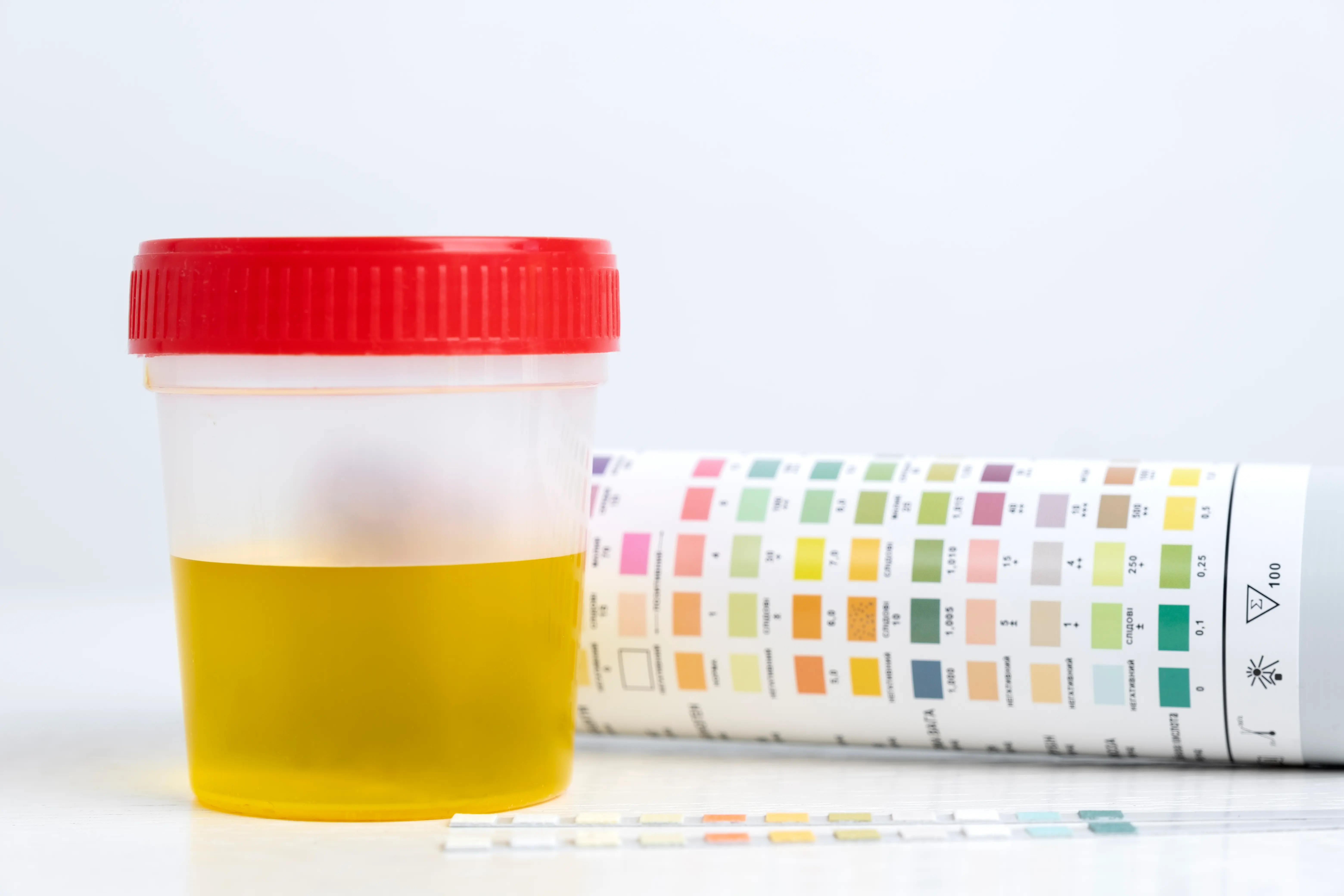
© PMC
Urine analyses
Urinalyses
Urinalyses are another important, non-invasive method for detecting diseases. Most often, the first morning urine is used – in special cases, a 24-hour collected urine – as it is particularly concentrated. Initial information is often provided by a simple test strip ("urine-stix") that is directly dipped into the urine. It quickly provides information about parameters such as glucose, protein, leukocytes, pH value, or bilirubin. These values can indicate diabetes, urinary tract infections, liver disorders, or metabolic changes.
For further analyses, the urine is prepared in the lab:
- Microscopic examination to visualize cells, crystals, or bacteria
- Urine culture to grow germs and test for antibiotic sensitivity
- Immunological and chemical procedures to determine additional markers (e.g., kidney function, pregnancy hormones)
In preventive medicine, urine tests are often used in addition to blood analyses to obtain a comprehensive picture of metabolic status, organ function, and potential stressors.
_1500x2250_150_RGB-2.webp)









